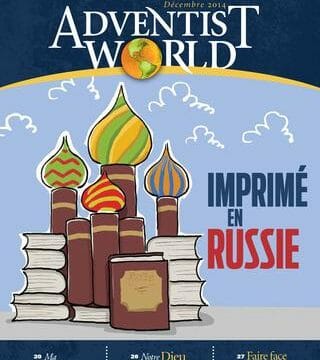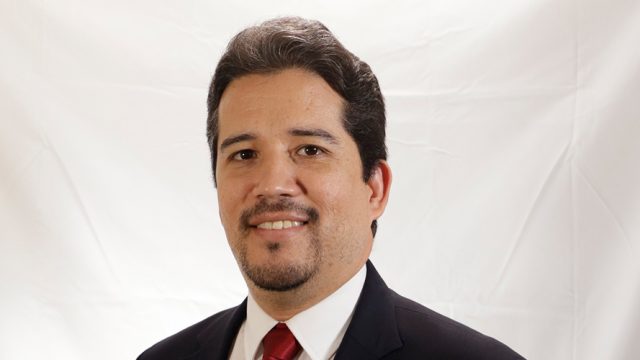Looking at the kosmos through the lens of the New Testament

Life is an incredible gift. When considering the complex interactions that make it possible, we experience a deep sense of awe. Even the inorganic components of our system, from the soil where crops are grown to the air we breathe, are part of a beautiful balance that binds earth’s inhabitants to their planetary dwelling.
Our world, however, is also the stage where painful events and distressing conditions are witnessed on a daily basis, including diseases, natural catastrophes, lack of resources, and harshness of climate in many regions of the earth. Looking at this puzzling conglomerate of good and evil, we ask: Is this the way God designed the world to be from the beginning? Did He plan for our lives to be in constant turmoil, between joy and suffering, ecstasy and grief? In the pages of the New Testament we find a coherent answer to this question, addressing the conditions of our world from a cosmic perspective.
The World: A Noun With Many Facets
As is the case with many other words, the word “world” has distinct meanings and can be linked to various concepts. This is true also for its use in the New Testament, where in fact there are at least three different Greek words that are often translated as “world.”
The first and most common is kosmos. Kosmos can refer to the entirety of the physical universe, as in Acts 17:24, where Paul describes “the God who made the world [kosmos] and everything in it.”1 More often, however, the emphasis is specifically on the terrestrial domain (e.g., Matt. 26:13; Rom. 10:18).
The world is the stage where the predicament of the human condition unfolds: “Sin came into the world [kosmos] through one man” (Rom. 5:12). Therefore, in the New Testament kosmos is often used with a spiritual connotation, becoming a synonym for an approach to life antithetic to God’s principles. For example, James states that “whoever wishes to be a friend of the world [kosmos] becomes an enemy of God” (James 4:4) and John declares that “the whole world [kosmos] lies under the power of the evil one” (1 John 5:19). When considering this negative connotation of the word kosmos, we are left in awe at the realization that God loved this kosmos to the point of
giving His only Son to rescue it (John 3:16).
The second Greek word translated as “world” is oikoumene. This noun is used to refer more to the inhabitants of earth rather than the planet itself. We find it in such verses as Acts 17:31, where Paul says that God “has fixed a day on which he will have the world [oikoumene] judged in righteousness,” or Luke 2:1, where it is reported that Emperor Augustus decreed “that all the world [oikoumene] should be registered.”
Finally, the Greek word aion can also at times be translated as “world.” Aion more properly indicates a period of time, an age, the temporal background in which things can happen and be. Therefore, when Paul says, “Do not be conformed to this world [aion]” (Rom. 12:2), he refers to the present age, the economy of things in a world corrupted by sin.
The World: Not the Same as in the Past
When we consider what the New Testament says about the world we live in, we notice that discontinuity with the past is a key concept. Peter, for example, talking about the earth before the flood, says that “the world [kosmos] of that time was deluged with water and perished” (2 Peter 3:6). The expression “of that time” implies a contrast and distinctiveness between the present and the antediluvian world, which is now lost to us. However, an even more significant change that altered the conditions of the world after Creation was the entrance of sin (Rom. 5:12). God’s creation now suffers under the bondage of corruption (Rom. 8:20-22). In the present world the powers of darkness (Eph. 6:12) have extended their influence to the point that their commander is called “the ruler of this world [kosmos]” (John 14:30) and “the god of this world [aion]” (2 Cor. 4:4).
The World: Not the Same as in the Future
The good news of the New Testament, however, is that there is also going to be a clear discontinuity between the present and future state of things. In many passages a distinction is made between what we are experiencing now and what is to come (e.g., Rom. 8:38; 1 Cor. 3:22; 1 Tim. 4:8; Heb. 13:14).
On the one side, we have “this world [kosmos, aion]” (John 12:25; Rom. 12:2; 1 John 4:17) or “this present world [aion]” (2 Tim. 4:10). On the other hand, we have explicit references to an “age to come [aion]” (Matt. 12:32; Eph. 1:21) and a “coming world [oikoumene]” (Heb. 2:5). Interestingly, the word kosmos is never used to refer to the future world, perhaps because of its association with the negative aspects of the present reality.2
By using different terms, such as “new heaven and new earth” (Rev. 21:1), or aion and oikoumene, New Testament writers stressed an unmistakable change from the old system of things. The new dispensation will not be a mere modification of the present one, but something completely new: “Death will be no more; mourning and crying and pain will be no more, for the first things have passed away. And the one who was seated on the throne said, ‘See, I am making all things new’ ” (Rev. 21:4, 5).
Clarity, Resilience, and Hope
Embracing the New Testament description of an original world, now fallen but to be made new in the future, impacts the way we live our Christian witness in several practical ways. When considering the past, we are given more clarity to avoid attributing to God evil realities with which He is not associated. While living in the present, we are encouraged to be resilient, considering how God’s hand is still visible in the kosmos, notwithstanding the millennia of evil and degeneration after the Fall. Finally, when looking forward toward the future, we are filled with contagious hope and anticipation for new heavens and a new earth in which righteousness dwells (2 Peter 3:13).
1 All Scripture quotations have been taken from the New Revised Standard Version of the Bible, copyright © 1989 by the Division of Christian Education of the National Council of the Churches of Christ in the U.S.A. Used by permission.
2 See G. Kittel, G. W. Bromiley, and G. Friedrich, Theological Dictionary of the New Testament: Abridged in One Volume (Grand Rapids: Eerdmans, 1985), p. 462.
Ronny Nalin, Ph.D., is an associate scientist at the Geoscience Research Institute of the General Conference of Seventh-day Adventists and lives with his wife Elisa and two
daughters in Mentone, California.
Fundamental Belief #6: Creation
God has revealed in Scripture the authentic and historical account of His creative activity. He created the universe, and in a recent six-day creation the Lord made “the heavens and the earth, the sea, and all that is in them” and rested on the seventh day. Thus He established the Sabbath as a perpetual memorial of the work He performed and completed during six literal days that together with the Sabbath constituted the same unit of time that we call a week today. The first man and woman were made in the image of God as the crowning work of Creation, given dominion over the world, and charged with responsibility to care for it. When the world was finished it was “very good,” declaring the glory of God. (Gen. 1; 2; 5; 11; Ex. 20:8-11; Ps. 19:1-6; 33:6, 9; 104; Isa. 45:12, 18; Acts 17:24; Col. 1:16; Heb. 1:2; 11:3; Rev. 10:6; 14:7.)








